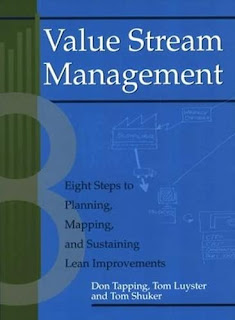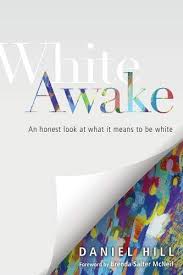White Guilt, by Shelby Steel, puts forth quite a Conservative point of view on racism, moral relativism, welfare, civil rights, affirmative action, individual responsibility, the new white liberal, and what we should do about those. These messages resonated with me. I suspect they would not resonate
at all with a Liberal. I didn't fact check anything in White Guilt, and I can't say how much of the text is opinion versus factual. In fact, there aren't a lot of facts, at all, in this book. This isn't to say that it is nonfactual, just that it's subjective, opinionated. It uses logical arguments. It isn't backed up by facts and figures and science, but it is about social issues and psychology, so there is no science or numbers to back up this nor a contrary point of view. But to be fair, the same can be said by all the other books in my
prior post, with the exception of
Dispossession.
The Vacuum of Moral Authority
Shelby does not defend or excuse white supremacy. In fact, he says that it has undermined the moral authority (legitimacy) of America and its institutions. "Segregation was... an institutionalized infidelity to democratic principles."
White guilt, then, come out of "...the vacuum of moral authority that comes from simply knowing that one's race is associated with racism. Whites (and American institutions) must acknowledge historical racism to show themselves redeemed of it, but once they acknowledge it, they lose moral authority over everything having to do with race, equality, social justice, poverty, and so on. ... The authority they lose transfers to the 'victims' of historical racism and becomes their great power in society. This is why white guilt is quite literally the same thing as black power."
To take that a bit further, "[w]hites know on some level that they are stigmatized by their skin color alone, that the black people they meet may suspect them of being racist simply because they are white." Whites have this fear of being called a racist, and so take actions so as to be seen as not racist. "...racism was also evidence of white wrongdoing and, therefore, evidence of white obligation to blacks. King had argued that whites were obligated to morality and democratic principles. But white guilt meant they were obligated to black people because they needed the moral authority only black people could bestow."
Riots Out of Proportion
Thankfully, this shift in attitudes away from racism brought on beneficial civil rights advancements, and some helpful policies and programs. But it also drove most remaining overt racism underground and made it harder to sustain black power and civil rights momentum. Therefore, the focus shifted to "systemic", "structural", and "institutional" racism.
Such makes "every racist event the tip of an iceberg so that redress will be to the measure of the iceberg rather than to the measure of its tip." "...the smallest racial incident proved the 'global truth' of systemic racism. This is why one black man being beaten by police in Los Angeles could trigger a massive riot in which some 60 people were killed. ... A riot to the scale of systemic racism rather than to the scale of the [single] racist event." [According to Wikipedia, "63 deaths, 2,383 injuries, more than 7,000 fires, damage to 3,100 businesses, and nearly $1 billion in financial losses", and that's just in LA.] We now have a "riot paradigm in which the scale of the violence was always far out of proportion to the triggering event, usually [an] ... instance of police brutality." Some part of white America now sees them "as authentic expressions of black rage and would respond to them with understanding rather than disregard and withering suppression."
Shelby says these riots are a manipulation of white guilt, evidenced by the fact that whites are rarely the targets. The damage was always to fellow blacks and within black neighborhoods.
Blacks as Victims
Shelby gives multiple chapters to make a point that this all makes blacks perpetually victims, doesn't encourage personal responsibility, and encourages support of black identity (group identity) as being more important than individual identity. Black leaders say they can't uplift themselves, that they have no power, thus feeding white guilt. Making others responsible for its advancement ultimately harms blacks, keeping "black America underdeveloped".
This is where Shelby turns on white liberals and "corrupt black leadership". "Thus we got remedies pitched at injustices rather than at black academic excellence -- school busing, black role models as teachers, black history courses, "diverse" reading lists, "Ebonics," multiculturalism, culturally "inclusive" classes, standard tests corrected for racial bias, and so on. All this but no demand for parental responsibility, for hard to work on reading, writing, and arithmetic." Asking a black child to study harder is interpreted as racism.
Liberal Grasp for Moral Authority
Then, "poverty came to be seen as a condition unrelated to the dysfunctions of those who suffer it, and always treatable by the 'interventions' of government and other institutions." This gives the liberal party the moral authority and legitimacy it seeks. This "brings real power to whites to embrace it. ... This has been the essential power of the political left in America since the 60s -- this promise to restore legitimacy by taking responsibility for inequality and poverty..." Their "social morality is nothing more than dissociation."
Throughout his book, Shelby gives a few logical arguments to the absurdity of some policies and programs that have come from this situation. For example, in chapter 19 Shelby gives an argument to how Justice O'Connor in the Michigan affirmative action case, because of white guilt, "applies a remedy to something that is not a problem -- diversity. ... So O'Connor is saying that it is perfectly constitutional to have a remedy that remediates nothing, a race-based remedy that does not remediate racial discrimination; and that this is so even when that remedy is literally executed through programmatic racial discrimination." "Worse, implied in her decision is a view of blacks as inferiors who simply cannot compete without 25 more years of white paternalism." Chapter 22 gives an interesting treatment about Justice Clarence Thomas' dissenting opinion on the case.
It is as if it doesn't matter what policies or programs are put in place, as long as they are seen as an effort to make amends for past wrongs, and to not hold "victims" of historical racism accountable for their own uplifting.
"Institutions are not interested in the reasons for minority non-competitiveness; they are interested only in the fact that this persistent weakness means they must use preferences ..." Institutions only have to appear to dissociate from America's racist past, not actually do anything meaningful about it. Minority recruitment and lower standards for minorities don't solve the real problem.
It's theatre. "... hoping that money thrown at blameless poverty would win moral authority."
Liberal White Supremacy
"This points to the sad irony at the core of black-white relations in America. The price blacks pay for the mere illusion of recompense for past injustice always requires them ... to be merchandised to whites as inferiors in victims."
"...the great internal contradiction of white liberalism: that its paternalism, its focus on whites rather than on blacks as the agents of change, allows white supremacy to slip in the back door and once again to find a fundamental relationship between whites and blacks. So the very structure of the liberal faith – that whites and "society" must facilitate black uplift – locks white liberals into an unexamined white supremacy."
This Liberalism is all about dissociation and is inherently elitist. Such a person asserts they are better than any Conservative "because he is conspicuously dissociated from the litany of American sins." Worthy of moral authority.
Black Responsibility
Throughout the book, Shelby repeats his point of view that blacks need to take more "responsibility for themselves and their children." "A 70% illegitimacy rate among all blacks ... pretty much makes the point that there is a responsibility problem. To know this, as all blacks do, and to have to pretend that it is not strictly true or that certain "systemic" forces are more responsible than blacks themselves is knowingly to lie to oneself."
Conclusion
I don't claim that this synopsis is free from bias. On the contrary, there is surely bias in how I arranged the points, in what text I selected to include, and in what I chose to exclude. Nevertheless, I tried to be fair to Shelby's thesis, to not misrepresent.
In a December 2020 discussion on Facebook, Curtis Stuehrenberg said "Shelby Steele has made himself famous and wealthy being one of the Black men who tell White people they aren’t racist." Shelby does indeed state that "Unreconstructed whites in America are not so unreconstructed anymore. Racism and imperial ambition no longer characterize the attitudes of most Americans."
However, Shelby's book isn't written to tell white people they aren't racist. In fact, Shelby does indeed give examples of ongoing white racism. He acknowledges that it still exists. He also lambasts the white liberal as the new racist. But, it seems to me, his point isn't to let whites off the hook. His point is to get blacks to accept responsibility.
As I stated in my prior post, I have been intentionally seeking out voices I previously wouldn't have listened to, and reading stuff I normally wouldn't have read. This isn't something I normally would have read, but I'm glad that I did. I don't see the core message of White Guilt at being at odds with the core messages of those other books. It's "yes and". Yes there is systemic racism and whites should take responsibility for eliminating racists policies. Yes individual responsibility is important. Every family and individual should take responsibility for their own education, health, morality, civic duty, and contribution to society. Yes, everyone has some racist thoughts or actions, in various ways, at various times. We are all brought up in this system that none of us created. Whites do not have a monopoly on racism. Let's learn how to not be defensive, but to have positive conversations on how to move forward.








